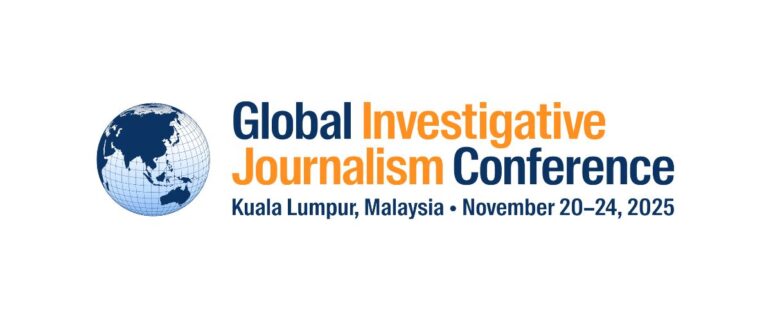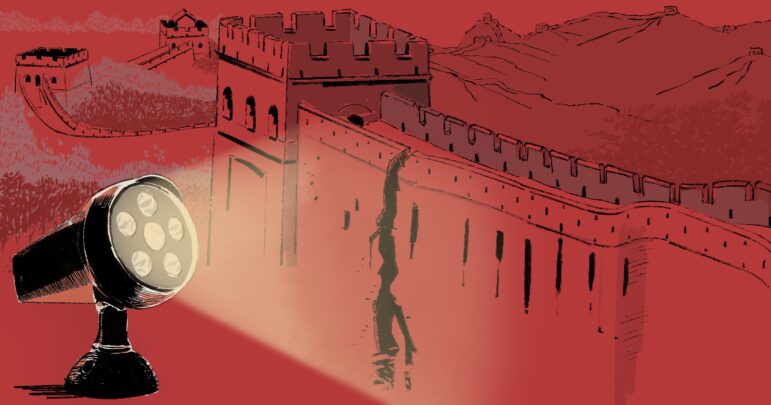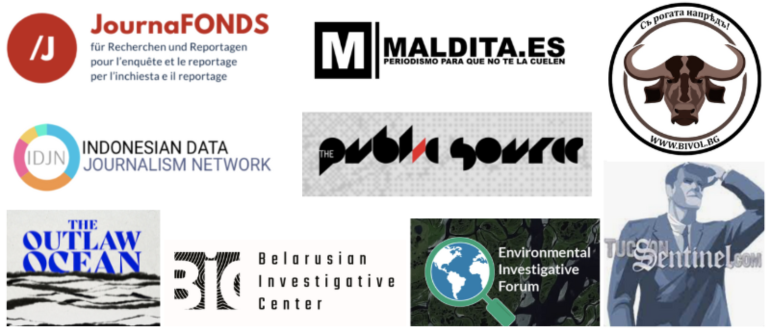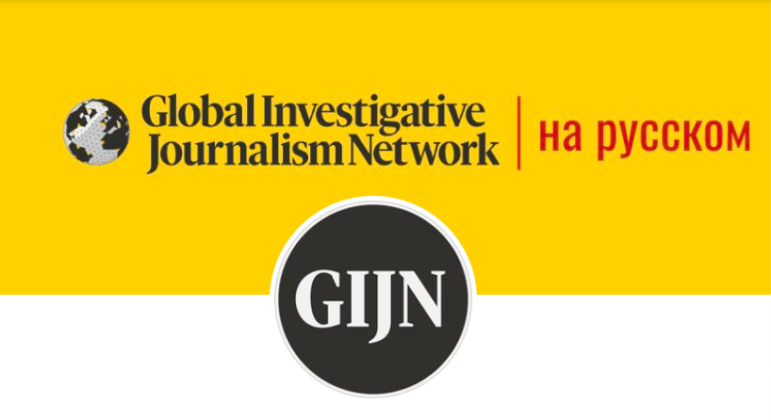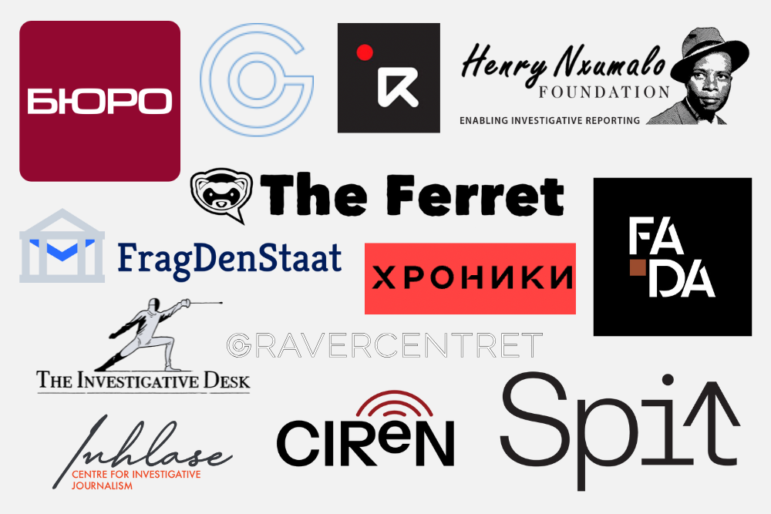

Image: GIJN
GIJN Welcomes 12 New Members, from Cyprus to Eswatini
Read this article in
The Global Investigative Journalism Network is proud to announce and welcome 12 new members: a diverse group of nonprofit newsrooms and investigative journalism support organizations from 11 countries that are doing crucial accountability work in tough press environments.
We are particularly delighted to welcome our first members from Eswatini— the Inhlase Centre for Investigative Journalism — and Cyprus, the Cyprus Investigative Reporting Network. Notably, some of the new members are organizations that help reporters conduct investigations that might not otherwise be pursued, several others actively probe cross-border abuses or promote civic engagement, and two are collectives that deploy independent reporters to dig into pressing public interest issues such as the environment and human rights violations.
Approved by a unanimous vote of the GIJN Board of Directors, this new cohort brings GIJN’s membership total to 263 organizations in 97 countries.
While GIJN supports all watchdog journalism sectors through its training programs, Global Investigative Journalism Conferences, and free resources, GIJN membership is limited to NGOs, independent nonprofit newsrooms, and educational organizations that actively work in support of investigative reporting and related data journalism. (For a full listing, see our membership directory.)
“We are honored and excited to welcome our 12 new member organizations. Their work is outstanding and inspiring. While more members from our community have been under attack in their countries, having an active community that shares experiences, ideas, and holds power to account is more important than ever. We are looking forward to continuing advancing connections between our members, so we continue strengthening our capacity as a community,” said Emilia Díaz-Struck, GIJN’s executive director.
Please join us in welcoming our newest members.
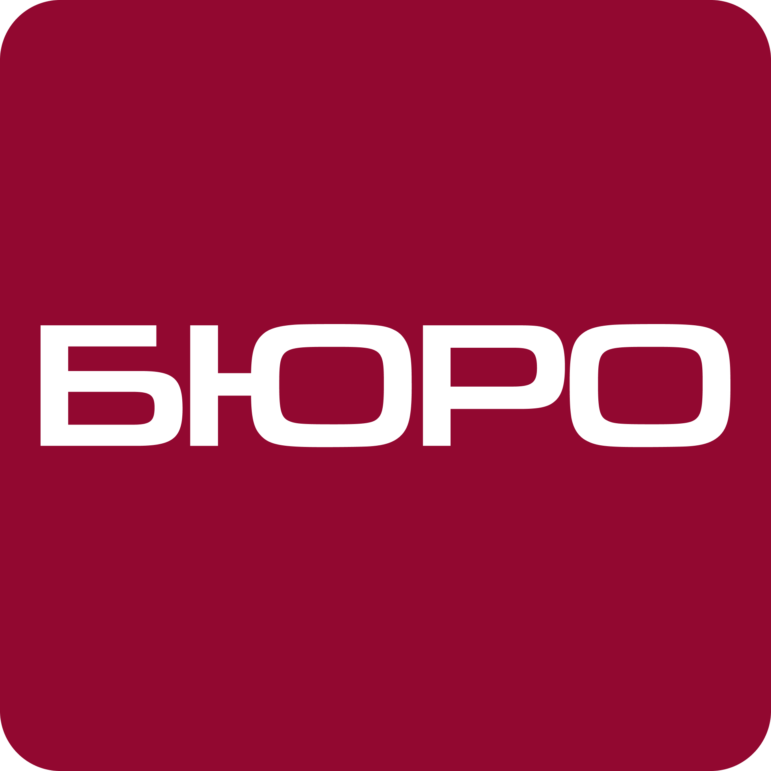 Buro Media (Belarus) is a team of exiled Belarusian investigative journalists that produces investigations every month on the abuse of money, rights, and power. A member of OCCRP, the outlet has published investigations that have resulted in sanctions against individuals and the closure of European borders for the transit of Belarusian goods to Russia. According to Buro Media: “We document bribery, fraud, tax evasion, money laundering, cronyism, sanctions evasion, human rights abuses, and other crimes in fields ranging from economics to education, politics to medicine.” On average, the team produces one major investigation every month, as well as two social media-based “mini-investigations.”
Buro Media (Belarus) is a team of exiled Belarusian investigative journalists that produces investigations every month on the abuse of money, rights, and power. A member of OCCRP, the outlet has published investigations that have resulted in sanctions against individuals and the closure of European borders for the transit of Belarusian goods to Russia. According to Buro Media: “We document bribery, fraud, tax evasion, money laundering, cronyism, sanctions evasion, human rights abuses, and other crimes in fields ranging from economics to education, politics to medicine.” On average, the team produces one major investigation every month, as well as two social media-based “mini-investigations.”
 Cyprus Investigative Reporting Network (Cyprus) is an independent nonprofit investigative media platform based in Nicosia, and the first outlet solely dedicated to investigative journalism in Cyprus. A member of the Organized Crime and Corruption Reporting Project (OCCRP) – as well as a member of the Institute for Mass Media (IMME), a Cyprus-based nonprofit academic research organization — CIReN is owned and managed by journalists, and pursues investigations that expose social, financial, environmental, political, and institutional wrongdoing. Stories appear on its website in English, Greek, and Turkish.
Cyprus Investigative Reporting Network (Cyprus) is an independent nonprofit investigative media platform based in Nicosia, and the first outlet solely dedicated to investigative journalism in Cyprus. A member of the Organized Crime and Corruption Reporting Project (OCCRP) – as well as a member of the Institute for Mass Media (IMME), a Cyprus-based nonprofit academic research organization — CIReN is owned and managed by journalists, and pursues investigations that expose social, financial, environmental, political, and institutional wrongdoing. Stories appear on its website in English, Greek, and Turkish.
 Gravercentret (Denmark) develops and supports investigative journalism in Denmark, with a focus on local and regional media and citizen groups that support accountability. The center trains small newsrooms and groups in investigative methods through dedicated workshops and guidance, as well as self-built databases that journalists can use to pursue local public interest stories. The centre was founded in 2023 by Roger Buch, Nils Mulvad, Steen K. Rasmussen, and Bruno Ingemann in cooperation with the Danish School of Media and Journalism.
Gravercentret (Denmark) develops and supports investigative journalism in Denmark, with a focus on local and regional media and citizen groups that support accountability. The center trains small newsrooms and groups in investigative methods through dedicated workshops and guidance, as well as self-built databases that journalists can use to pursue local public interest stories. The centre was founded in 2023 by Roger Buch, Nils Mulvad, Steen K. Rasmussen, and Bruno Ingemann in cooperation with the Danish School of Media and Journalism.
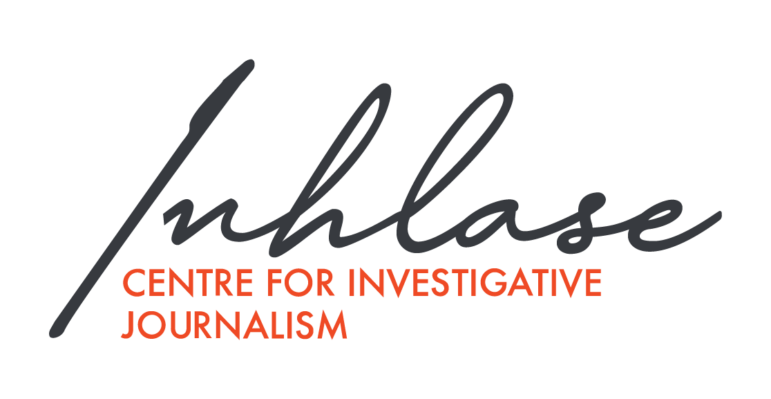 Inhlase Centre for Investigative Journalism (Eswatini) was co-founded by two veteran Eswatini journalists, and serves as a guardian of truth and public interest accountability within Africa’s last absolute monarchy. True to its name (which means “spark” in siSwati,) the Centre acts as a catalyst for collaboration and investigative skills development in the small Southern African kingdom, while also sparking reforms through its courageous investigations into corruption, nepotism, and power abuse. It registered as a nonprofit in 2017, and now performs media research and media freedom advocacy functions in addition to its essential watchdog role.
Inhlase Centre for Investigative Journalism (Eswatini) was co-founded by two veteran Eswatini journalists, and serves as a guardian of truth and public interest accountability within Africa’s last absolute monarchy. True to its name (which means “spark” in siSwati,) the Centre acts as a catalyst for collaboration and investigative skills development in the small Southern African kingdom, while also sparking reforms through its courageous investigations into corruption, nepotism, and power abuse. It registered as a nonprofit in 2017, and now performs media research and media freedom advocacy functions in addition to its essential watchdog role.
 FragDenStaat (Germany) is an investigative champion for freedom of information in Germany, which advocates for public disclosure, publishes withheld documents, collaborates with journalists, and conducts its own investigations. According to its About page: “Whether it’s a lobbyist email, an environmental report, minutes, or a calendar entry, FragDenStaat helps to make it public with the help of the Freedom of Information Act (FOIA).” Based in Berlin and Brussels, FragDenStaat includes an investigative unit that specialises in FOI-based research, collaborating with national and international media partners, including Die Zeit, Süddeutsche Zeitung, and Der Spiegel. FragDenStaat’s legal unit has helped to file more than 160 FOI lawsuits against German and EU authorities to obtain withheld public information. More info can be found on the site’s English and German versions.
FragDenStaat (Germany) is an investigative champion for freedom of information in Germany, which advocates for public disclosure, publishes withheld documents, collaborates with journalists, and conducts its own investigations. According to its About page: “Whether it’s a lobbyist email, an environmental report, minutes, or a calendar entry, FragDenStaat helps to make it public with the help of the Freedom of Information Act (FOIA).” Based in Berlin and Brussels, FragDenStaat includes an investigative unit that specialises in FOI-based research, collaborating with national and international media partners, including Die Zeit, Süddeutsche Zeitung, and Der Spiegel. FragDenStaat’s legal unit has helped to file more than 160 FOI lawsuits against German and EU authorities to obtain withheld public information. More info can be found on the site’s English and German versions.
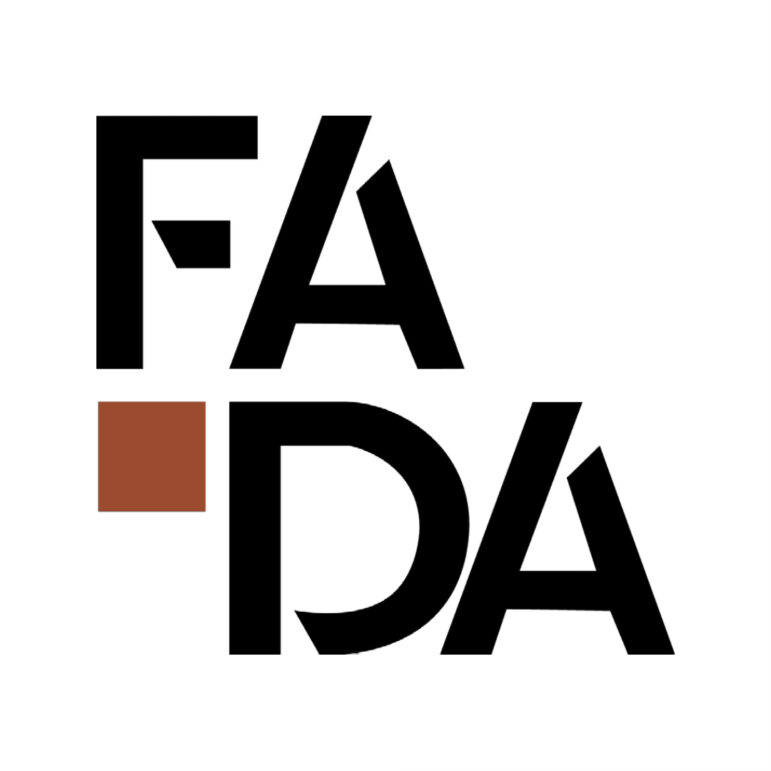 FADA Collective (Italy) is an independent newsroom that produces deeply reported stories on public interest and cross-border issues. Dedicated to opening spaces for community dialogue around journalism and civic participation, the nonprofit focuses on holding public and private actors accountable for rights violations and actions that put communities and the environment at risk. The team’s investigations include stories on the climate crisis, border policies, food systems, social movements, and misconduct by state actors.
FADA Collective (Italy) is an independent newsroom that produces deeply reported stories on public interest and cross-border issues. Dedicated to opening spaces for community dialogue around journalism and civic participation, the nonprofit focuses on holding public and private actors accountable for rights violations and actions that put communities and the environment at risk. The team’s investigations include stories on the climate crisis, border policies, food systems, social movements, and misconduct by state actors.
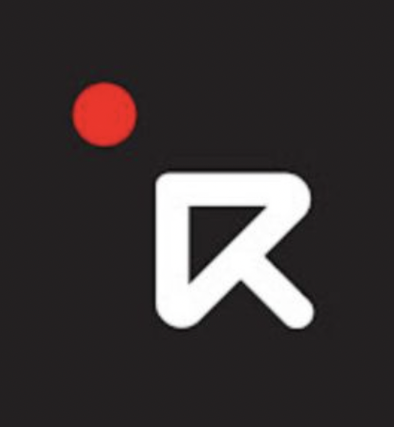 Temirov Live (Kyrgyzstan) is a YouTube-based investigative media outlet in Kyrgyzstan that investigates corruption, exposes propaganda, and regularly publishes its investigations in video format. It has experienced government oppression in retaliation for its watchdog work, with 11 of its former or current journalists having been arrested in 2024 and three of them given multi-year prison sentences this year. Launched by the Beylep Foundation, the project has two major YouTube channels: Temirov Live, in Russian, and Temirov Live KG, in the Kyrgyz language. It also offers a channel called Ait Ait Dese (“the voice of the people”), which raises civic awareness in Kyrgyzstan through expert discussions about high corruption rates, the persecution of independent media, civic responsibility, the suppression of free speech, and how to counter Russian propaganda.
Temirov Live (Kyrgyzstan) is a YouTube-based investigative media outlet in Kyrgyzstan that investigates corruption, exposes propaganda, and regularly publishes its investigations in video format. It has experienced government oppression in retaliation for its watchdog work, with 11 of its former or current journalists having been arrested in 2024 and three of them given multi-year prison sentences this year. Launched by the Beylep Foundation, the project has two major YouTube channels: Temirov Live, in Russian, and Temirov Live KG, in the Kyrgyz language. It also offers a channel called Ait Ait Dese (“the voice of the people”), which raises civic awareness in Kyrgyzstan through expert discussions about high corruption rates, the persecution of independent media, civic responsibility, the suppression of free speech, and how to counter Russian propaganda.
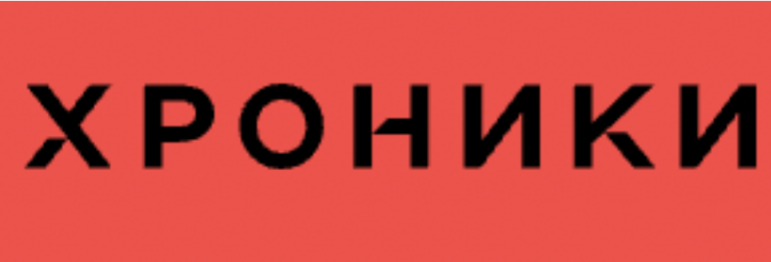 Chronicles.Media (Russia) was established in 2021 by two experts in anti-corruption investigations, and conducts corruption investigations and cross-border accountability projects in order to act as “a chronicle of Russian theft.” The small team has produced more than 100 investigations, including a collaborative project with Follow The Money on Scandinavian companies continuing to do business in Russia after its invasion of Ukraine, and a recent investigation into shell companies allegedly linked to illicit exports and a local politician. According to its About page: “We know and understand the context of the Russian North-West. Our team consists of people with decades of experience investigating corruption at various levels — from procurement violations of a small municipality to the purchase of luxurious dachas that do not fit into the official’s salary budget.”
Chronicles.Media (Russia) was established in 2021 by two experts in anti-corruption investigations, and conducts corruption investigations and cross-border accountability projects in order to act as “a chronicle of Russian theft.” The small team has produced more than 100 investigations, including a collaborative project with Follow The Money on Scandinavian companies continuing to do business in Russia after its invasion of Ukraine, and a recent investigation into shell companies allegedly linked to illicit exports and a local politician. According to its About page: “We know and understand the context of the Russian North-West. Our team consists of people with decades of experience investigating corruption at various levels — from procurement violations of a small municipality to the purchase of luxurious dachas that do not fit into the official’s salary budget.”
 The Ferret (UK – Scotland) is an award-winning investigative journalism platform owned by its members and run as a nonprofit co-operative in Scotland. Its stories have prompted parliamentary questions, influenced policy on fracking, fish farming, homelessness, freedom of information and investments in Russian entities, and led to the proscription of a far-right terrorist group. Having launched in 2015, the outlet has published more than 2,100 public interest stories and fact checks, as well as more than 5,000 datasets and source documents linked to its reporting. The team has also collaborated with a dozen major watchdog media sites, from the Guardian to The Bureau of Investigative Journalism. In 2017, the team launched Scotland’s first fact-checking service, Ferret Fact Service, which checks claims from politicians, public figures, and organizations, as well as viral claims, hoaxes, and memes. Its FFS podcast has been downloaded more than 20,000 times.
The Ferret (UK – Scotland) is an award-winning investigative journalism platform owned by its members and run as a nonprofit co-operative in Scotland. Its stories have prompted parliamentary questions, influenced policy on fracking, fish farming, homelessness, freedom of information and investments in Russian entities, and led to the proscription of a far-right terrorist group. Having launched in 2015, the outlet has published more than 2,100 public interest stories and fact checks, as well as more than 5,000 datasets and source documents linked to its reporting. The team has also collaborated with a dozen major watchdog media sites, from the Guardian to The Bureau of Investigative Journalism. In 2017, the team launched Scotland’s first fact-checking service, Ferret Fact Service, which checks claims from politicians, public figures, and organizations, as well as viral claims, hoaxes, and memes. Its FFS podcast has been downloaded more than 20,000 times.
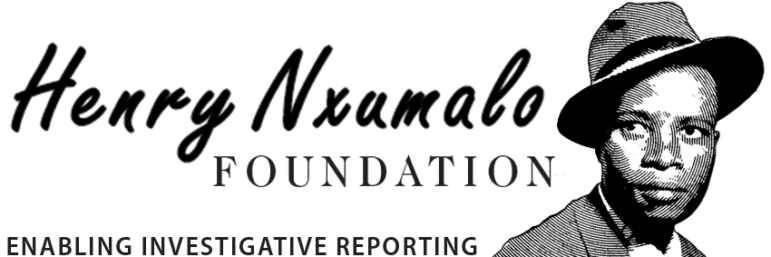 Henry Nxumalo Foundation (South Africa) helps journalists and organizations in Southern Africa that might lack reporting resources — often on under-covered topics — by providing funding, mentoring, and training for investigative projects. Growing out of the Taco Kuiper Fund, HNF has its roots at the University of the Witwatersrand in South Africa, and was registered as an independent nonprofit in 2020. The foundation saw significant staff and footprint growth in 2024. In total, HNF and its predecessor have supported more than 90 watchdog projects in 13 countries. HNF has partnered in projects with the Gates Foundation, the Global Initiative Against Transnational Crime, and the African Investigative Journalism Conference. (For disclosure: HNF’s executive director, Anton Harber, is a GIJN board member.)
Henry Nxumalo Foundation (South Africa) helps journalists and organizations in Southern Africa that might lack reporting resources — often on under-covered topics — by providing funding, mentoring, and training for investigative projects. Growing out of the Taco Kuiper Fund, HNF has its roots at the University of the Witwatersrand in South Africa, and was registered as an independent nonprofit in 2020. The foundation saw significant staff and footprint growth in 2024. In total, HNF and its predecessor have supported more than 90 watchdog projects in 13 countries. HNF has partnered in projects with the Gates Foundation, the Global Initiative Against Transnational Crime, and the African Investigative Journalism Conference. (For disclosure: HNF’s executive director, Anton Harber, is a GIJN board member.)
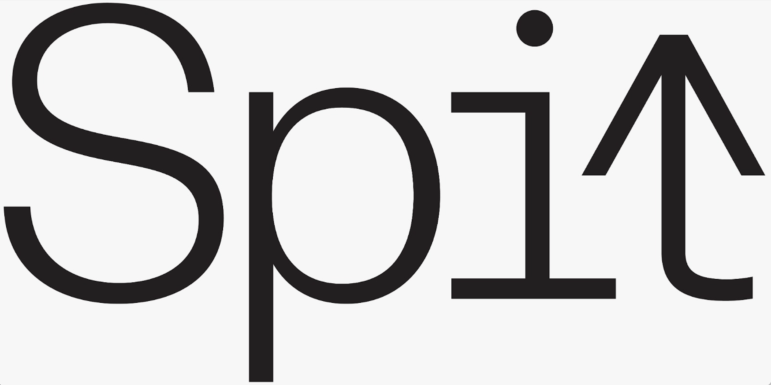 Onderzoekscollectief SPIT (The Netherlands) is a Dutch collective of investigative journalists covering underreported societal issues through in-depth, long-term investigations. Founded in 2019, the collective features a team of eight independent members, whose investigations combine storytelling, data journalism, and cross-border collaboration, and are published across digital, radio, and TV outlets. SPIT specializes in exposing systemic problems in areas such as housing, the environment, and the economy, and its investigations have probed issues such as fishing quotas, contaminated soil, political corruption, the global benzine trade, and housing inaccessibility.
Onderzoekscollectief SPIT (The Netherlands) is a Dutch collective of investigative journalists covering underreported societal issues through in-depth, long-term investigations. Founded in 2019, the collective features a team of eight independent members, whose investigations combine storytelling, data journalism, and cross-border collaboration, and are published across digital, radio, and TV outlets. SPIT specializes in exposing systemic problems in areas such as housing, the environment, and the economy, and its investigations have probed issues such as fishing quotas, contaminated soil, political corruption, the global benzine trade, and housing inaccessibility.
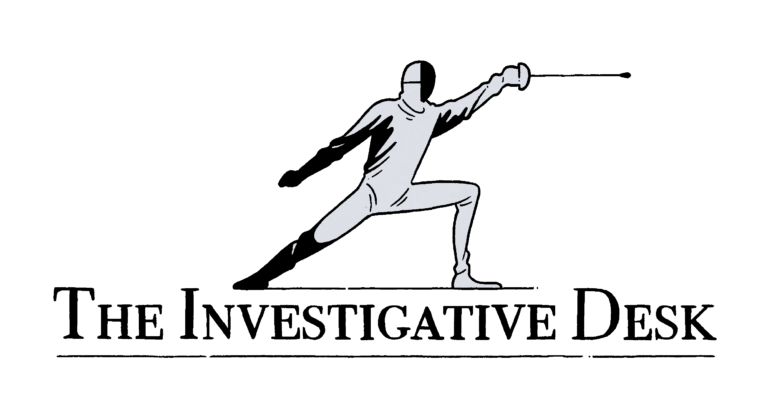 The Investigative Desk (The Netherlands) was founded in 2018, and TheID is a collaborative investigative newsroom that focuses on abuses in major sectors, and publishes on partner outlets in the Netherlands and elsewhere in Europe. The team includes 10 investigative journalists and five contributing journalists, who focus on wrongdoing involving sectors such as defense, energy, chemicals, climate, agriculture, healthcare, and finance. TheID also runs an Investigative Lab, an 18-week apprenticeship program for aspiring investigative journalists. According to TheID, “Our mission is to investigate the power mechanisms in businesses, governments and other institutions, and produce thorough stories about these mechanisms, in order to stimulate the public debate and — if possible — spur the reform of unjust, illegal, and abusive practices.”
The Investigative Desk (The Netherlands) was founded in 2018, and TheID is a collaborative investigative newsroom that focuses on abuses in major sectors, and publishes on partner outlets in the Netherlands and elsewhere in Europe. The team includes 10 investigative journalists and five contributing journalists, who focus on wrongdoing involving sectors such as defense, energy, chemicals, climate, agriculture, healthcare, and finance. TheID also runs an Investigative Lab, an 18-week apprenticeship program for aspiring investigative journalists. According to TheID, “Our mission is to investigate the power mechanisms in businesses, governments and other institutions, and produce thorough stories about these mechanisms, in order to stimulate the public debate and — if possible — spur the reform of unjust, illegal, and abusive practices.”
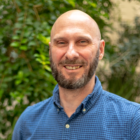 Rowan Philp is GIJN’s global reporter and impact editor. He was formerly chief reporter for South Africa’s Sunday Times. As a foreign correspondent, he has reported on news, politics, corruption, and conflict from more than two dozen countries around the world.
Rowan Philp is GIJN’s global reporter and impact editor. He was formerly chief reporter for South Africa’s Sunday Times. As a foreign correspondent, he has reported on news, politics, corruption, and conflict from more than two dozen countries around the world.

